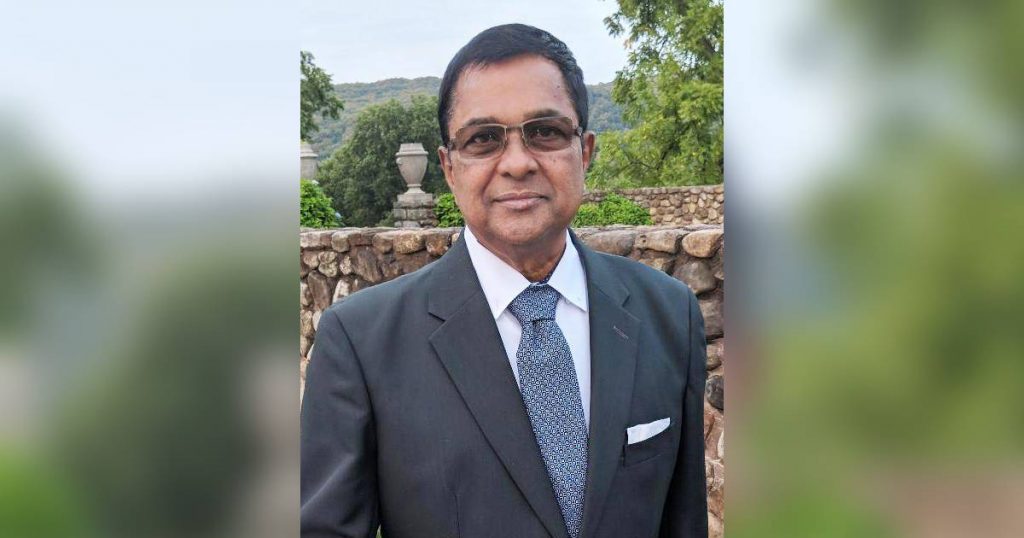Such a conference was very long in coming as the last such one was held several decades ago. Hinduism in the Americas and Caribbean has been undergoing new paradigms, but there is no one standard approach or religious books, or religious leaders from far and wide, by which a common ground could be followed or practiced, and even in India such a practice is not fully operational. There is no set dogma in Hinduism, which in turn makes it, even more controversial to be followed by the millions around.
Whilst other religious groups or societies, more or less stick to the dictum which lays out a common approach, and probably this is why thousands of Hindus whose religious persuasions have its origin in the Hinduism brought down to the Caribbean and the world over. In other words, there are no set precedents here.
When our forefathers came to the Caribbean, from India, principally Uttar Pradesh and Bihar in the middle of 19th century they brought with them a set of books, principally the Ramayana, which is today the standard guidelines.
Hinduism in the Caribbean faces a downward spiral with the conversion challenge to various forms of Christianity, and today our mother, fathers, sisters and brothers, in fact the family walks with the Bible in their hands briskly walking to church.
The conference held in mid-October pinpoints the challenge to produce strategies such as, “to mobilize Hindu communities and stakeholders to actively implement to foster a collaborative and supportive relationship with pandits and Hindu leaders to help contribute to the development of practical strategies and initiatives that will positively impact Hindu communities.”
And the guest speaker at the conference, Pundit Professor Prakash Persad, President of the University of Trinidad and Tobago, gave a very progressive and factual of the state of Hinduism in this hemisphere, as he queried the state of Hinduism for the coming generations in these parts of the global society.
“Being a firm believer in Karma and therefore an optimist, I posit that it will depend on what we discuss and decide here today, and more importantly, whether we follow through with focused and coordinated, collective actions, and he pontificates that ICT and AI technologies would have to play an expanding and dominant role.”
Confirming that it is not an organized religion, meaning that there is no central authority and founder, as its structure is a distributed one and can be defined as a loose association of communities accepting a common, core belief system, which is the main, includes the belief of karma, reincarnation, many forms of God and many paths of worship. “Superimposed on the core would be rituals, traditions of belief and practices of a local regional character.”
Pundit Persad continued: “Itis syncretic by nature as it attempts to incorporate all beliefs with which it coms into contact. Furthermore, it is neither prescriptive nor dogmatic of their own destiny and hence required to apply the rules of Dharma in all aspect of their lives. Democracy is central to its ethos and it allows for divergent views, even opposing ones. Finally, capitalism, of dharmic a nature, is a fundamental pillar of the religion”.
Pundit Persad who is also Chairman, Technological Board (Dharma Mandal) SWAHA Inc. and Professor of Mechantronics, noted that from being a dominant community in the old world until a millennium ago, to being a subjugated one, and then a colonized one, Hindu communities, over many centuries, have been subjected to vicious and continuous assault. Naturally, this would have been severely impacted their psyche as individuals and a community, and in view of this legacy and initially operating at the bottom of the social strata in colonized world. Hindus in order to cope with and survive in the hostile environments in which found themselves, have acquired the following general descriptions: extremely self-absorbed, insufficient or incorrect interpretation/understanding pf their scriptures and, ingrained sense of insecurity that manifests in preaching, social attitudes and leadership attributes.
Thanks,
Parasram (Paras) Ramoutar. HBM. JP. BA.APR.ABC
International Journalist/Consultant
61 Main Road, Caparo. Trinidad.
H:(868)672.8702/C;(868)374.5586
Email: paras_ramoutar@yahoo.com
